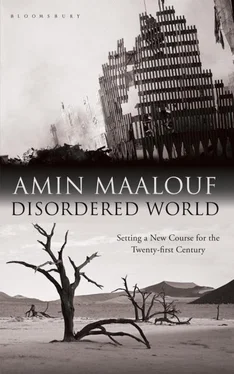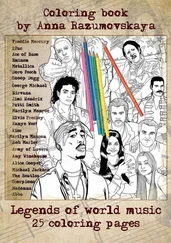It is just a short step from this to the conclusion that there is no point trying to integrate immigrants from the Muslim world or Africa. It is a step which many people have already taken silently, even if they still feel obliged to deny it. I, however, continue to believe that harmonious coexistence is possible and is in fact indispensable if we wish to forge solid links between the members of different cultures rather than resign ourselves to divisions between them which breed conflict, hatred and violence. Immigrants who fully embrace a sense of belonging to two cultures are more likely than anyone to break down divisions.
That said, I am conscious of the fact that successful integration today is arduous and will only become more so in the decades to come, and that thoughtful, subtle, patient and even resolutely willed action will be required to avoid looming disaster.
In France, generous spirits explain with varying degrees of conviction that successive waves of immigrants — Italians, Poles, or refugees from the Spanish Civil War — have had to cope with hostility and prejudice before becoming fully integrated and that immigrants from the Muslim world will eventually follow a similar path. An admirable sentiment, but scarcely credible. The truth is that it will be hard for any European country to resolve its integration problems while the global atmosphere remains charged with mistrust and resentment, as it is today.
What happens in each country depends in part on the policies it implements, but it also depends in large measure on factors it cannot control. When someone from North Africa emigrates to the Netherlands, he arrives with an image of that country that has been conveyed by friends and family who have already gone there; but also with an image of the West as a whole, an image which is much more linked to US policy, or the memory of French colonialism, than the history of the Netherlands itself. This perception includes both positive aspects — otherwise he would not have come to live there — and negative ones, which today occupy a much bigger place than they did thirty years ago.
New immigrants observe the behaviour of their hosts with intense attention. They are constantly on the lookout for glances, gestures, words, whispers and silences that confirm that they are in a hostile or contemptuous environment. Of course, immigrants do not all react in the same way. Some are embittered and interpret everything that emanates from the Other negatively, while others are blissfully happy and only notice things which seem to show that they are accepted, valued or loved. Sometimes the same person will go from one feeling to another: a friendly smile makes him respond with overwhelming gratitude; an instant later, a word or gesture suggestive of hostility, contempt or simply a certain condescension and he feels a desire to lash out, break things and also to destroy himself. Because he hates his own image as much as the mirror which reflects it.
What makes relations fragile between immigrants and the societies which accept them — and as a result makes coexistence fragile too — is that the wound is always there. The skin that has formed on the surface has never been able to toughen. Anything at all can reawaken the pain, sometimes just a scratch or even a clumsy caress. In the West, many people shrug their shoulders at such hypersensitivity. Shouldn’t we let bygones be bygones and forget colonialism, segregation, the treatment of the blacks, the extermination of the bushmen, the Taínos, or the Aztecs, the Opium Wars and the crusades? But the past does not occupy the same mental space for everyone, nor for every society.
For the past truly to become the past, it is not enough simply for time to go by. For a society to be able to draw a line between its past and its present, it needs something on this side of the hypothetical border on which to base its dignity, self-respect and identity. It needs among its attributes recent scientific inventions, convincing economic successes, cultural creations which are admired by others, or military victories.
Western nations do not have to look to distant centuries for reasons to be proud. Their contributions to medicine, mathematics or astronomy can be found in the morning papers. They do not need to invoke the contemporaries of Avicenna, or endlessly bring up the origins of terms such as ‘zero’, ‘zenith’, ‘algebra’ or ‘algorithm’. Their most recent military victory dates from 2003, or 2001 or 1999; there is no need to go back to the ages of Saladin, Hannibal or Ashurbanipal. As a result, westerners do not feel the need to keep harking back to their past. If they do study it, it is to get a better view of their journey, to reveal trends, to understand, speculate or extrapolate. But this is not vital nor a requirement of their identity. The present is enough to confirm their self-esteem.
Conversely, people whose present offers only examples of failure, defeat, frustration and humiliation inevitably scour their past for reasons to keep believing in themselves. The Arabs feel like exiles in the contemporary world, strangers everywhere, scarcely less in their own countries than in the diaspora. They feel defeated, discredited and humiliated. They express it, shout it, lament it, and wonder constantly — explicitly or implicitly — how they might reverse the direction of history.
All oriental peoples in the past few centuries have felt the same. All of them have had to measure themselves against the West at some point; all have borne the brunt of its extraordinary energy, its formidable economic and military effectiveness, and its spirit of conquest. All have admired, feared, detested and fought it with different outcomes — the Chinese, Indians, Japanese, Iranians, Turks, Vietnamese, Afghans, Koreans and Indonesians, as well as the Arabs.
None of these peoples could recount their history without a thousand references to their encounter with the West, which sometimes lasted centuries. The whole modern history of a great country like China could be expressed around one central question: how to respond to the formidable challenge posed by the white man. All their major upheavals — whether the Boxer Rebellion, the rise of Mao, the ‘Great Leap Forward’, the Cultural Revolution or the new economic policy initiated by Deng Xiaoping — could in large measure be interpreted as the search for a response to that question. The question could also be reformulated like this: in order to be able to join the modern world without losing our dignity, what should we preserve of our past and what should we reject?
This is a question which never totally disappears from the consciousness of any human society, but it is not asked with the same intensity in all times and places.
When a nation achieves success, others look on it differently, which influences its self-image. I am thinking in particular of the attitude of the rest of the world to Japan and later China. Criticised, feared, but respected for their ability to fight, and in particular admired for their economic miracles, these countries have seen respect rise for everything their culture does: their languages, their art, their ancient and modern literature, their ancient medicine, their spiritual disciplines, their culinary traditions, their ritual dances, their martial arts and even their superstitions have attracted enthusiastic attention. As soon as a people acquires the image of being a winner, every aspect of its civilisation is looked at with interest and automatic respect by the rest of the world. The country itself may thereafter allow itself the luxury of becoming detached and critical. Indeed, the Chinese today often behave indifferently towards their past and feign amusement and incomprehension when Western visitors marvel at a civilisation dating back millennia.
Читать дальше












